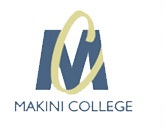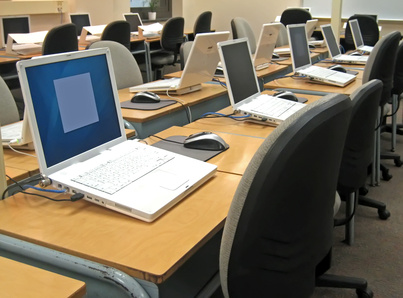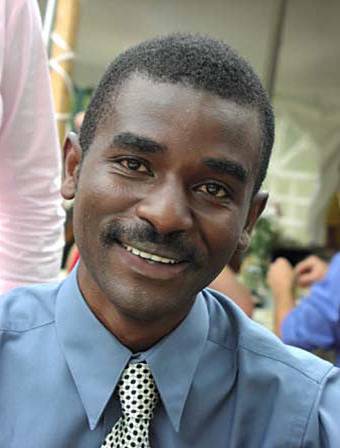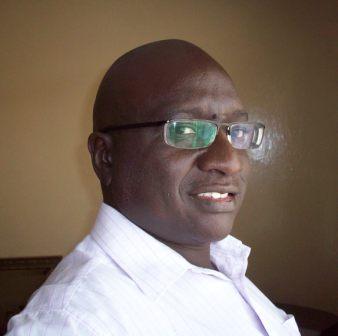US College & University
Preparation Services



|
|
Program |
Facilitator |
Time Period |
|
1 |
Introduction Program |
Professor K. Tirima Mr. Teddy Warria Dr. Hellen Kariuki Dr. Julius Weche Mr. Joseph Okelo
|
5 Weeks
2 hours per session, Twice weekly |
|
2 |
Professor K. Tirima |
5 Days Computer Based
|
|
|
3 |
Mr. Teddy Warria Dr. J. Weche |
1 Month
1 Diagnostic test 26 lessons Computer Based
|
|
|
4 |
Essay Preparation |
Professor K. Tirima Teddy Warria |
2 Days Essays submitted for review electronically 10 days before class Electronic feedback sessions
|
Professor K. Tirima

Mr. Teddy Warria

Dr. J. Weche
Introduction program: Details
|
No. |
Topical Outline |
|
1 |
Personal development strategies, Critical Thinking & accelerated learning |
|
2 |
Dreams, Goal setting, Time Management, Change Management |
|
3 |
Excellence, Communication & Presentation Skills |
|
4 |
Leadership & Relationship Management, Networking & Referrals |
|
5 |
Negotiation & Conflict Management |
|
6 |
Legacy, Contribution, Community & Social Responsibility |
|
7 |
Applying to US Colleges; “New Horizons” |
|
8 |
Introduction to SAT & TOEFL - Read more |
|
9
10 |
Practicals 1: a. Audio Visual presentations b. Exposure to US equipments c. Visits: EducationUSA Kenya, US Embassy d. Mentorship talks by US University alumni
Practicals 2: USA Educational Travel a. Pre-travel preparation; obtaining US travel visa, other requirements b. Actual travel to the United States of America |
Location:
Makini College,
14th Floor, Corner House,
Corner Kimathi Street, near Hilton Hotel,
Nairobi,
Kenya
Contact Us
Do You Need a Career Development Professional?
Career counselor, career development facilitator, career coach, job coach, and vocational counselor are just a few of the names for this kind of service. There are hundreds of potential careers available; how does one make a career choice when they do not really know what they want to do?
Many career problems can be prevented with advance planning and regular attention to the career path. A time of crisis is not the best time to seek help. A good career development professional can help explore career options, with details of labor market trends, assess candidate skills, interests, and work related values. Our career development professional can help sharpen your job search skills, and help one learn how to move up the corporate ladder.
But even as you would never consider seeing a doctor who does not have a medical degree, advice on careers should be from relevant professionals whose credentials are known. In this regard, we will arrange for meetings with our career professionals in taking the process forward.
1. Assessment
Evaluating who you are as a person. This involves taking a personal inventory of who you are and identifying your individual core values, interests, skills, and personal qualities.
Value Inventories
Measurement of how important different values are to you; how important are issues such as job satisfaction, autonomy, prestige, security, interpersonal relations, helping others, flexible work schedule, outdoor work, leisure time, and high salary.
Interest Inventories
Appreciate your likes and dislikes for various activities; people who share similar interests will tend to also enjoy the same type of work.
Personality Inventories
Individual traits, motivational drives, needs, and attitudes. Here our consultants will use the Myers-Briggs Type Indicator (MBTI) personality inventory.
Skills Assessment
This helps to determine what you're good at, and enjoy doing; skills used in careers should combine both characteristics. The results of skills assessments can be used to make some changes by acquiring skills needed for particular careers.
What makes you tick as a person? You will look at those personal attributes under a microscope and come up with key qualities you can identify and use in your search for the perfect career. Career assessments may be required to promote a better understanding of personal attributes and skills.
2. Research (Career Exploration)
Obtain an insider’s perspective about the career field you are considering. Our professionals enjoy sharing their expertise with people interested in the field. This strategy provides first hand knowledge from a professional in the field and gives you an opportunity to ask about their experiences as well as potential jobs and what one might expect if just entering the field.
3. Experience
Gain experience through internships or job shadowing for one to several days to see what a typical work day entails and to gain perspective of what the environment is like and the typical job responsibilities of someone working in the field.
4. Decision-Making
Once you’ve made a thorough self-assessment and have done some research of career options, it’s time to make a decision. This can be difficult since there may still be many unknowns and a fear of making the wrong choice. One thing for sure is that although we can do all the necessary steps to making an informed decision, there is no absolute certainty that we are unquestioningly making the right decision. This uncertainty is easier for some people than others but a key point to remember is that you can always learn from any job you have and take those skills and apply them at your next job.
5. Job Search (Taking Action)
One can then begin to research for prospective jobs, responding to advertised positions, sending out cover letters and CV’s with networking in the field. The CV being one that highlights your skills and strengths, based on the employer’s expressed felt needs. We therefore help one to better prepare for the interview process for employment, or walk with entrepreneurs who wish to set up their own business.
6. Acceptance
Once accepted into a new or different job. According to the US Bureau of Labor Statistics, 64.1% of people change jobs 5 to 14 times in their lifetime. Learning these skills therefore increases your chances for meaningful, satisfactory work over your lifetime and helps avoid many stresses associated with changing jobs. Yet we need to appreciate change is good (even advantageous) – for which changing jobs can be viewed as a positive experience in your personal and professional growth. This means that the above processes of self-assessment, research, decision-making, and job searching will continue to play out in order to make effective and fulfilling career changes throughout your lifetime. Jobs will face severe, unforeseen changes due to a variety of factors; technology, economic conditions and society can change, phase out or enhance occupations. If you can welcome change, you will succeed with less stress hence the need to choose your career track wisely. Which is why we are here to walk with you through the processes.
7. Transferable Skills: Bringing Skills to a New Career
Should you need a career change, your valuable experience obtained can be of value in seeking new work opportunities. Transferable skills are gathered through paid or volunteer work, hobbies, sports and life experiences. It is necessary to identify these skills and match them to advertised job vacancies and bring them out through your objectives or skills based functional resume. Combination resumes combine a functional and chronological resume, listing work experiences with skills. Let us help walk you through this process, should the need arise.
Facilitator CV's

|
Dr Hellen Kariuki CV.pdf Size : 189.056 Kb Type : pdf |

|
CV Dr Weche - September 2011 - b.pdf Size : 129.092 Kb Type : pdf |
|
||
|
Quiz: Is This the Right Career for You?
Which
career is right for you? Take a career quiz ... or two ... or three.
Find out which career is suitable for someone with your personal
characteristics.
|
||
|
Another Quiz: Should I Choose This Occupation?
While
the last quiz can help you figure out if you have the personal
characteristics suitable to a particular career, this quiz looks at how
much you know about the career in which you're interested and whether it
meets your requirements in terms of job duties, salary and educational
requirements.
|
